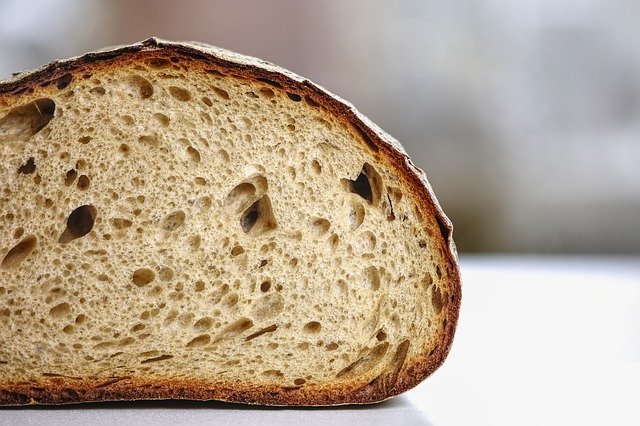 Whether we are team Marvel or DC; Jedi or Enterprise; Potter or Percy Jackson, we all have our favorite hero stories. And don't get me wrong, I love them too. These stories, and the worlds in which they take place, are filled with joy, hope, and glimpses of the extraordinary. But for us everyday mortals, the love of the extraordinary can be a problem. You’ve probably seen the story going around about the high school principal in South Carolina who works the night shift at Wal-Mart, donating his paycheck to students and families in need. This story has gone viral, and is billed as a ‘feel good’ feature in the newsfeeds. But I find way too much about the backdrop of this story troubling to feel good about it. That is not to diminish in any way the incredible kindness and sacrifice of this dedicated educator. I’m just concerned about how readily we laud such individual acts of mercy, without questioning the corporate realities that make such acts necessary. We celebrate a man who will jump into a chasm of need-- but we don’t jump to close the chasm. Furthermore, we celebrate the employer for donating $50,000 to the local high school; without acknowledging that employer’s role in creating the chasm in the first place. The reality is that a company with the reach and resources of Wal-Mart could help create meaningful solutions to complex social issues if they wanted to… but they don’t. For starters, as a baseline minimum, they could pay their employees a living wage and interrupt the cycles of poverty. But they don’t. Another layer of reality here is that educators like Principal Darby are, themselves, underpaid. Because we (the collective “we,” and the representatives we elect) have systematically defunded public education for decades. This means not only that our educators are not valued as they should be; it means, also, that generations of adults are not equipped with the tools they need to be successful in this economy so fraught with chasms. In such an economy, we are eager to celebrate a wealthy philanthropist for donating a million dollars. Which is the equivalent of you or me throwing some change in the [insert local cause] jar at the Circle K. Is our heart in the right place when we drop those dimes? Sure. Did it truly cost us anything to make that donation? Not really. We marvel at the benevolence of billionaires. But we don’t ask that billionaire to look into the chasm--that growing divide where a few at the top of the food chain have more and more power, while untold millions go hungry. We scarcely want to look into that chasm ourselves. It feels better, of course it does, to read the feel good stories. Seeking emotional satisfaction over economic reformation, we put band-aids on amputation sites. We are led to build more temporary shelters and emergency relief programs instead of seeking lasting solutions to poverty. We value individual acts of mercy over communal acts of justice. I have a theory that this dynamic is related to the American bootstraps narrative, that toxic fairy tale that everyone has the same chances, and begins at the same starting line… and if we just work hard enough, we, too, will find our fortune. Those who live in need must be somehow lacking in their effort or worthiness, right? Meanwhile, the (diminishing number of) middle class folks emerge as the heroes of our own stories. In the spinning of this particular tale, we don’t just seek a savior; we also want to be one. At the personal/individual level, of course. Where this gets messy is… well, if the bootstraps narrative were real, we wouldn’t need heroes at all. Everyone would have enough, and we could go about practicing individual kindnesses without the need for radical social transformation. It’s complicated. What I know is that people like Mr. Darby, and anyone else who works and lives and gives to make their communities a better place, should be celebrated. That isn’t the problem. The problem is, we cannot “feel good” about these individual acts of mercy without also questioning the world in which such needs arise. In so many ways, it is a world of our own making. The more we idolize wealth and individualism, the more we elevate the wealthy; and in turn, subjugate the poor. It is no surprised that our dubious values system has elevated leaders who are, themselves, corrupted by wealth, and govern only in the interest of the wealthy. This unbalanced world we have built, by extension, is a world that only we can change. In that regard, then yes, I guess we do need heroes. And what do all of our favorite hero stories have in common? Our heroes learn that they are nothing alone. Their "bootstraps," or any other special powers that they have, are almost always an illusion of sorts. They need a tribe, a team, a league, an order, to do any sort of meaningful good. Sure, one alone can save a kid from a burning building, neat trick. But to keep the whole city from burning--to save the ship, to stop the bomb, to push back the forces of darkness-- they need each other. As we continue to recognize and celebrate individual acts of kindness, we should also be watching and supporting those who work for meaningful justice. Organizers working to raise the minimum wage; community leaders working to address systemic racial injustice, particularly in our education and criminal justice systems; educators fighting for the very concept of true ‘public’ education; scientists working against the clock to protect the environment; and many of you who are marching, writing, calling, gathering, and doing whatever it takes to bring about change at your local level. Wherever you are, find the folks close to home who are digging deeper, and then go put yourself in that story. Heroes don’t ignore the chasm. They face it-- and then they jump in.
1 Comment
 I use stock images sometimes- but actually took these myself! Goose Creek trail. I use stock images sometimes- but actually took these myself! Goose Creek trail. Historically speaking, January and I have not been friends. Blame it on the cold, the post-holiday letdown, or the fact that January is about as far as a month can be from October (except for November & December, but they get a pass on account of holidays). For the seven years I lived in Arizona, January and I had a respite from our adversarial relationship. In the southwest, that window of time is a sparkling paradise -- perfect for drinking spicy Mexican lattes and hiking desert mountains under crayon-blue skies dotted with hot air balloons. And also, you know, a nice break from the other months that will melt your face right off and not even feel sorry about it. It's possible that, since leaving that winter utopia, I've felt even more frigid towards the first month of the year. And January in a pandemic? I've been dreading it, hard. The cold and the gray, plus the isolation and anxiety, and the lack of things to look forward to... It felt like a lot this year. The attempted overthrow of the government didn't help, but at least I saw that one coming. I looked at my calendar this week and noted that January is ALMOST OVER! And yet... winter is not done, by a long shot. Neither is the pandemic. Or the escalating political discord that really piles on to the usual heaviness of the season. We've got miles to go yet, on all counts, and we all need some coping devices to get us through. I'm not telling anybody how to live their lives, but here are a few of the daily verbs that have been holding me up through this season:
Speaking of reading--my daughter has been reading The Long Winter, a book in the Little House/Laura Ingalls Wilder series. I never really got into those as a kid, other than little snippets here and there. But I'm familiar with the gist of this one: it's winter, it's cold, they have no food, everything is terrible, they almost die. The end. And get this-- my kid has read this before and is reading it again on purpose. For fun. I said "why in the world would you want to read that right now?? Isn't it so depressing?!" And do y'all know what this tiny thing said to me? She said, "Well, parts of it are sad. But it makes me feel happy because in the end... it's spring." Well. Let the child preach. Here in my end of Kentucky we got a beautiful big snow this week-- the kind that looks nice and is fun to play in but melts off the road quickly. I walked over to creek (crick) in my neighborhood just to stand there on the path in a quiet, wooded place for minute. The canopy of icy branches, almost cartoonishly magical, reminded me that winter does have its own kind of beauty some days, its own spiritual gifts, if we can be wise enough to witness. Meanwhile, the water running over the rocks of the creek bed sang its own song -- spring is coming. Seems like my kid and my creek have the same good news to share this week. Finish the book. Stay in this story, however sad and heavy it feels. In the end, it will be spring.  There are staples I buy every time I go to the store. They don't even have to go on the list, they're just part of life. Milk. Fruit. Cheese. Cereal. And bread. I always buy bread. But lately, I've noticed that when I put the groceries away, I go to put the bread in the pantry... and there is already a loaf of bread there. Sometimes half a loaf, sometimes a whole one. Interesting. As I tossed the new bread into the freezer (again) I took a minute to wonder what might be causing our carbs to pile up like this. Nobody is on a keto kick. And it occurred to me that during pandemic times, a few things have shifted. For one thing, there is no school. Which means there are no lunch boxes. Our mornings are not spent making sandwiches and cleaning up our lunch mess while we also put away the breakfast dishes. The other thing that has changed is The Children themselves. I do not know how this happened, but I have two tweens up in here all of a sudden. One is as tall as me, and the other is gaining fast. Since they were toddlers, they've been able to eat their collective weight in peanut butter sandwiches every week. And while their appetites grow along with them, it seems their tastes have changed. Given the fact that I have a full-time job and am not a damn maid, these grown ass children fix their own lunches now. Having no school and full access to the kitchen means that lunch is now mac cheese, frozen pizzas, quesadillas, or leftovers from dinner last night. In fact, my son commented the other day, "when we go back to school, I don't know what I'm going to take for lunch. I never really want sandwiches anymore." Aha. Bread mystery solved. And yet, I keep buying bread. I recognize the privilege inherent here- in buying something out of sheer habit whether we need it or not. Having more food in the house than we can eat in a week, having more than we need in general. So many are struggling right now. Diminished food security has been, by far, the biggest fall-out of the pandemic, with hunger affecting millions more people than the virus itself. I reckon with this imbalance by giving to causes and organizations that are working to feed people. Contributing to local needs as well as global development programs focused on food security and sustainability. At a more micro level, this disparity makes me want to examine my habits. What else do I do on autopilot without mindfulness? What other habits have I picked up, or let go, during this weird time of lockdown? What do I have more (or too much) of? What could I make more room for if I stopped taking up unnecessary space with things I don't need? And I don't just mean in the pantry... It makes me think about how I spend not just my money-- but my time, and myself. I buy more sweatpants and pajamas now; but spend a lot less on gas. I spend more time scrolling; but a lot less running around town for pointless errands. I see fewer people; but am so much more grateful for even the smallest of social interactions. I cook more and eat out less. I exercise more, but I also drink more. I miss the library and coffee shops, but I strangely don't miss so many other places where I used to spend my time. Interesting. Some of these evolutions are good and healthy. Some are not great. All of them are what they are. And all of them make me want to be more intentional about life in general when we go back to life as normal... whatever that means. This week, I won't buy bread. Maybe next week, I'll want toast for breakfast. Or I'll just forget and toss it in the cart again. Either way, my daily bread is now a daily call to mindfulness. And that, I will keep - with butter and jam. How about y'all? What habits have you picked up or laid down during all this craziness? How will it change your "normal" when this whole thing is over? What do you "throw in the cart" without even thinking about it? And what would you have more room for if you stopped?  I almost titled this post The Year Without A Bra. But a line like that is basically hanging a "no boys allowed" sign on the clubhouse door. Which is to say, I'm fixing to talk about bras for a minute, but it's not really ABOUT bras, so all y'all guys should hang in for a minute. I'll get to a point. My New Year's Eve plan was to put on a little black dress and what Reese Witherspoon would call "a full face of makeup" for our New Year's Eve in. Just to be festive for our our family game night and living room dance party (which, let's be real, we all knew was going to end up with us just watching a movie on the couch.) But then I worked out and by the time I finished with that and took a shower, my heart really wasn't in it to get fancy. Then I got to thinking that putting on a cute dress would involve putting on an ACTUAL BRA, and having not engaged in such nonsense for going on a year now, let's just say that by 5:50pm I was back in my Christmas pajamas and waiting on Chinese food delivery. Glass of wine in hand. No underwire. That's not a bad night right there. I spent last New Year's Eve at the Ryman in Nashville. They ran out of champagne at like 10:30pm., and I thought, bush league! Very poor planning on someone's part! But now all I can think is-- can you even get your head around spending New Year's in a crowded auditorium? At a concert where people are singing on you?? It seems like a whole other world. I'm sure things like that will all feel normal again someday, but it's hard to wrap our minds around at the moment. It's extraordinary how quickly our brains adapt to new information and circumstances. And when I think about my aversion now to putting on a bra--or really, anything mildly restricting--I wonder if maybe our bodies have adapted to this new reality too. I know that not everyone has had the privilege of working remotely in the safety of our homes. But whether you've been home all the time or just cutting way back on social engagements and unnecessary outings, I think our expectations about comfort have changed, for men and women alike. We've gotten more attached to our sweatpants. But it's more than that. I think we've gotten more used to being in our space, with our people. And whether we live with family, roommates, or alone, I think most of us have grown accustomed to spending more of our time in a place where we can be ourselves, and just be. Maybe without the daily demands of seeing and being seen, except by those who love us and know us best-- we are more comfortable in our skin. I'm not going to try to say that my family never drives me crazy. That the kids never bicker or melt down, or that being married to a drummer without a sound-proof basement is not without its challenges. I will not pretend this year has been all cozy and great, because there are days I've felt like I was losing my mind from being cooped up, trying to work a full time job and navigate the trials of online school with tweens. It's been an anxious and often sad time for all of us-- and a devastating time for many. But for all that -- I wonder if maybe we've better learned about what it means for our home to be a sanctuary. And if we might carry some of that forward in how we dress and present ourselves to the world. The lingerie industry may never recover. Women will only ever buy bras for comfort now (and, okay maybe for "recreational" purposes). And lingerie won't be the only casualty. The retail world will have to totally reinvent itself. Shoes, clothing, accessories, cosmetics--all will have to adapt for a consumer who is comfortable in their skin and space, and shops accordingly. Hell, this might be the year the diet industry finally tanks too. Would any of that really be the worst thing? Here's to a year of reinventing, reimagining, and throwing out everything that doesn't serve us. I'm starting with underwire. What about you? |
Archives
March 2023
Categories
All
|

